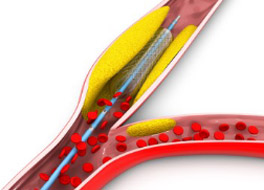
Comprehensive 2-Year Clinical Fellowship in Vascular Surgery
Our 2-year clinical fellowship provides comprehensive open vascular and endovascular training for 2 vascular surgery fellows per year. The training is from 8 board-certified vascular surgeons who practice at 4 hospital institutions, 2 out-patient surgery centers, and a single office-based practice. We utilize the knowledge and skills-based curriculum developed by the Association of Program Directors in Vascular Surgery. Global management of patients with peripheral arterial disease along with vascular medicine principles I incorporated into the daily learning environment.
Clinical Responsibilities and Rotations
Vascular fellows are responsible for the full management of the vascular service line at each of the integrated clinical sites. Clinical rotations are 1 month at a time at each of the 4 hospitals.
Rotations include Michigan Vascular Center's office clinic and Research Department, Michigan Vascular Hemodialysis Access Centers, and VeinSolutions™.
- McLaren – Flint
- Henry Ford Health Genesys
- Hurley Medical Center
- McLaren Bay Region
Training and Curriculum
Didactic Conferences
Education Block Conference
Morbidity and Mortality Conferences
- Michigan Vascular Center Morbidity & Mortality Conference
- McLaren – Flint
- Henry Ford Ascension
Angio Case Conference
Journal Club
Non-Invasive Vascular Laboratory Conference
Mock Oral Examination – Date TBD
Fellows participate in the following conferences:
- Houston Methodist New Fellow's Boot Camp — August
- UCLA/Moore Course "What's New in Vascular Surgery?" — August/September
- Midwest Vascular Surgical Society Simulation and Training Skills — September
- Midwest Vascular Surgical Society Mock Orals — September, May
- Houston Methodist Open Aortic Exposure Course
- Advanced Vascular Surgical Skills & Simulation Assessment Program (AVSSSAP) — January
- Michigan Vascular Society — February
- Venous Symposium — April-May
- Society for Vascular Surgery — Vascular Annual Meeting — June
Fellows Can Attend Other Meetings If They Are Presenting Research
- American Venous Forum
- Society For Clinical Vascular Surgery
- Michigan Chapter-American College Of Surgeons
- McLaren-Flint Area Medical Research Symposium
- Michigan State University Research Symposium

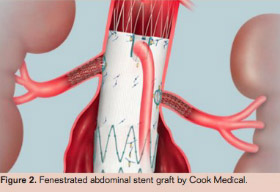
Acquisition of Clinical and Operative Expertise
Clinical and operative expertise is acquired through a multitude of clinical experiences including carotid stenting, fenestrated aortic endovascular graft placement, new biological dialysis access graft placement, and typical various open and endovascular arterial revascularization procedures.
Learning and Skill Development
Acquisition of knowledge will be through participation in weekly didactic conferences, clinical lectures, clinical patient rounds, journal clubs and independent study. Acquisition of technical skills includes both open vascular skills and endovascular simulation training as well as the supervised performance of surgical and endovascular cases appropriate to the level of training.
Post-Fellowship Competence and Certification
Upon completion of the fellowship, our graduating vascular fellows are expected to be fully competent and confident vascular surgeons ready to begin either a private or academic practice in vascular surgery. Furthermore, the graduating fellows are fully prepared to pass the vascular surgery qualifying and certifying examinations.
"The best Vascular Doctors in the State of Michigan. They are very professional and they also will go well and beyond to make sure you are getting the best treatment."
"The best vascular surgeons in Genesee County. Dr. Molnar is my very favorite but all of the Dr's are great. Friendly and caring employees also. This group saved my life. Literally."
"I am active in the Healthcare Industry and based on feedback from my industry colleagues, I can give them an unequivocal 5-star review!"
Site #1 – Michigan Vascular Center
Site #1 Rotation – Michigan Vascular Center
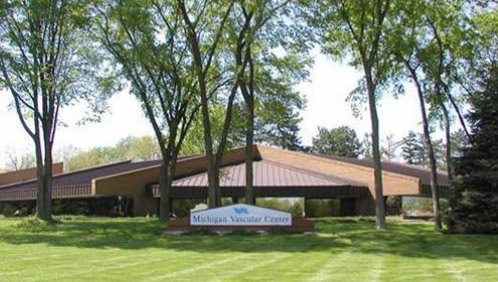
Your office will be located at Michigan Vascular Center's main campus on Bristol Road on the outskirts of Flint, Michigan. At the end of each day, no matter the rotation, you will likely return to the office where other faculty members also gather to see patients, read studies, and discuss your day. All faculty members are affiliated with Michigan Vascular Center. Its vascular surgeons work together as a team. All physicians share the responsibility for care of each patient.
The Michigan Vascular Center consists of the principle office complex providing space for clinical encounters, a large noninvasive vascular laboratory, the Research arm, Mobility Center and administrative offices as well as three satellite offices. Michigan Vascular Center has voluntarily achieved accreditation through AAAHC as well as The Society for Vascular Surgery. Personnel at the principal office coordinate scheduling of patient appointments, vascular procedures at all three participating local hospitals and will coordinate the activities of the Vascular Fellowship.
Fellows will rotate through MVC's campuses each year. The focus will be on all aspects of the outpatient experience from initial evaluation of the patient to determining a treatment plan, along with caring for patients in the Vascular Registry. Vascular Access procedures are performed at both the MVC Access Center and the Surgery Center. Michigan Vascular Center rotations include:
- MVC Main Campus—Includes the Outpatient Office Clinic and the Mobility Center for amputees. During hospital rotations, Fellows spend one afternoon per week in the outpatient clinic
- MVC Noninvasive Vascular Lab—Performs over 18,000 studies annually
- MVC Research Department—Organized in 2002, it has currently participated in over 61 clinical research trials
- Michigan Vascular Access Center—first free-standing hemodialysis access center dedicated to the vascular needs of renal patients in mid-Michigan. The access center offers comprehensive vascular services including diagnostic imaging of fistulas & grafts, repairs and/or minimally invasive procedures using catheter-based techniques such as venograms, fistulograms, percutaneous transluminal balloon angioplasty, coil embolization of fistula side branches, graft declots, and hemodialysis catheter insertions and removals.
- VeinSolutions—A free-standing center dedicated to providing comprehensive & exclusive care for patients with venous problems. VeinSolutions employs the latest technologies in the diagnosis and treatment of varicose and spider veins, venous insufficiency, and vascular birthmarks. Treatments include phlebectomy, sclerotherapy, venous ablation and pharmaco-mechanical Trellis®
Site #2 – McLaren – Flint
Site #2 – McLaren – Flint
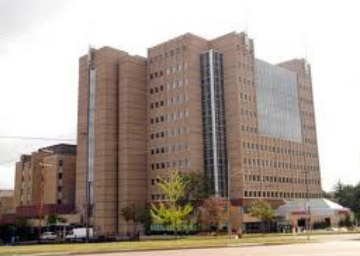
McLaren Flint will function as your employer during your Fellowship Program. Incorporated in 1919, McLaren is a private, non-profit, 404-bed teaching hospital located in Flint, Michigan. McLaren Flint is part of McLaren Health Care whose headquarters are also located in Flint. McLaren is among the top 100 hospitals nationwide. McLaren has a General Surgery Residency and an Orthopedic Residency whose residents rotate on the vascular service. McLaren also has a residency program in Family Practice, Internal Medicine, Radiology and a Hematology/Oncology Fellowship.
During rotations here, Fellows under the guidance of vascular faculty, will gain experience by making rounds, responding to consults, scrubbing on vascular cases, supervising the vascular service, directly overseeing surgical residents, PA students and medical students who spend one week on the vascular service as part of their third year rotations. The Fellows will assist in managing the operative and interventional schedule, run the service with oversight responsibility of PGY4, PGY2 or PGY1 surgical residents, and manage the census of the service.
Site #3 – Genesys Regional Medical Center
Site #3 – Genesys Regional Medical Center
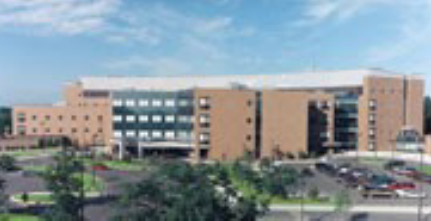
Founded in 1997, Genesys Regional Medical Center is a private, nonprofit, 410-bed hospital which includes a Level 2 Trauma Center. Genesys arose after the consolidation of four area hospitals. It is located in Grand Blanc, MI, a suburb of Flint and has a combined MD and DO staff. Genesys is a member of Ascention Health, a faith-based health organization created by a merger of The Sisters of St. Joseph and the Daughters of Charity.
In addition to the Vascular Fellowship, Genesys has one of the largest primary care residencies in the state. During rotations here, Fellows will be exposed to both allopathic and osteopathic treatment philosophies. They will gain experience making rounds with vascular faculty, scrubbing on vascular cases, supervising the vascular surgery service, directly overseeing medical residents, PA students and medical students. Along with vascular faculty, they will manage the operative and interventional schedule, run the service and manage the census of the service.
Site #4 – Hurley Medical Center
Site #4 – Hurley Medical Center
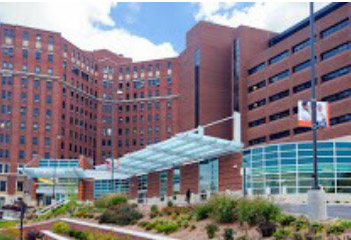
Founded in 1908, Hurley Medical Center is a public, non-profit, 443-bed teaching hospital located in Flint, Michigan. Hurley has a Level 1 Trauma Center. Hurley is Flint's inner city hospital where Fellows will develop competence in communicating effectively with patients and families of different socioeconomic and cultural backgrounds. Hurley has a number of medical specialty residencies and fellowships. Vascular Fellows will interact with residents from training programs in pediatrics, internal medicine, emergency medicine, obstetrics & gynecology, combined medicine/pediatrics, diagnostic radiology and orthopedic surgery and a Trauma Fellows. A hospital-employed NP is assigned to our service. There are currently no general surgery residents at Hurley.
Fellows will gain experience making rounds with vascular faculty, responding to consults and scrubbing on vascular cases. Fellows will supervise the vascular service and the vascular nurse practitioner. Vascular Fellows will be exposed to a variety of vascular trauma and will interact with the Trauma Fellows. They will help manage the operative and interventional schedule, and with the assistance of vascular faculty, will run the service and manage the census of the service.
Site #5 – McLaren Bay Region
Site #4 – Hurley Medical Center
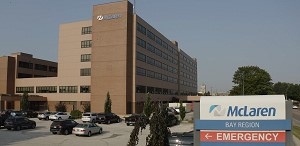
McLaren Bay Region is a 415 bed acute-care hospital providing specialty, primary, and preventative care located in Bay City, Michigan. Services include cardiovascular, neuroscience, women's health, orthopedics, rehabilitation, home health, hospice care, EMS, and oncology. The emergency department treats more than 45,000 patients a year.
McLaren Bay Region is affiliated with more than 50 educational institutions for the purpose of training a wide variety of clinical personnel. As the regional leader in cardiovascular and neuroscience services, the Bay medical center cares for patients throughout the Great Lakes Bay Region, which has a population of nearly 500,000. Dr. Nicolas Mouawad is the Site Director at McLaren Bay Region.
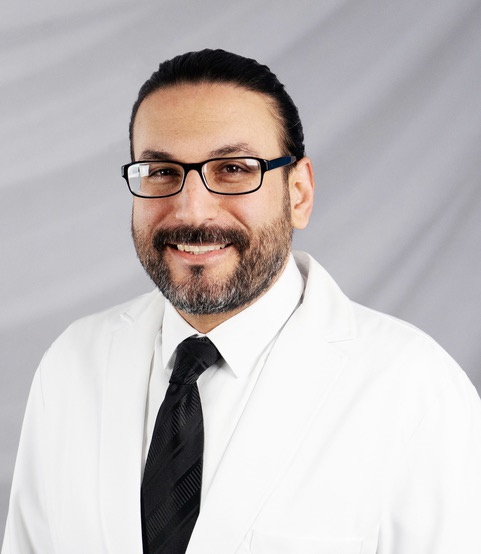
Nicolas J. Mouawad, MD MPH MBA DFSVS FRCS FACS RPVI
Nicolas J. Mouawad, MD MPH MBA DFSVS FRCS FACS RPVI is Chief of Vascular & Endovascular Surgery at McLaren Health, Bay City, Michigan. He's also Chair of the Department of Surgery, Chair of Cardiovascular Research, and Medical Director of the non-invasive vascular laboratories. He is board certified in general and vascular surgery, and specializes in advanced surgical vascular care, including aortic pathologies, advanced carotid revascularization, expanded endovascular therapies, complex CLTI/PAD, and venous disorders such as venous thromboembolism, DVT and PE.
He earned his medical degree at the Royal College of Surgeons in Ireland and completed a general surgery residency and chief residency at Trinity Health System, Ann Arbor, MI. He also completed a vascular surgery fellowship at The Ohio State University Wexner Medical Center, Columbus, OH. He has long focused as a health services professional and pursued a Master in Business Administration with a concentration in health care and hospital administration as well as a Master in Public Health with a dual focus on health policy & management and health education & promotion. He also completed the Leadership Program for Health Policy and Management at The Heller School for Social Policy and Management at Brandeis University, Waltham, MA. He was selected as the 2018 American College of Surgeons / Society for Vascular Surgery Health Policy Scholar.
Dr. Mouawad has received many honors and awards for teaching, research, and scholarship. He is associate professor of surgery at Michigan State University and Central Michigan University. An active clinical researcher, Dr. Mouawad is Chair of the Cardiovascular Research for the McLaren Health System. He is principal investigator of multiple enterprise level clinical trials spanning the breadth of vascular disease and continues to participate in new technology innovations. He has authored or co-authored more than 100 peer-reviewed articles, as well as multiple book chapters. He serves on the Editorial Board of the Journal of Vascular Surgery, Annals of Vascular Surgery and Frontiers in Vascular Surgery, among others, and serves as Associate Editor for Annals in Vascular Surgery.

